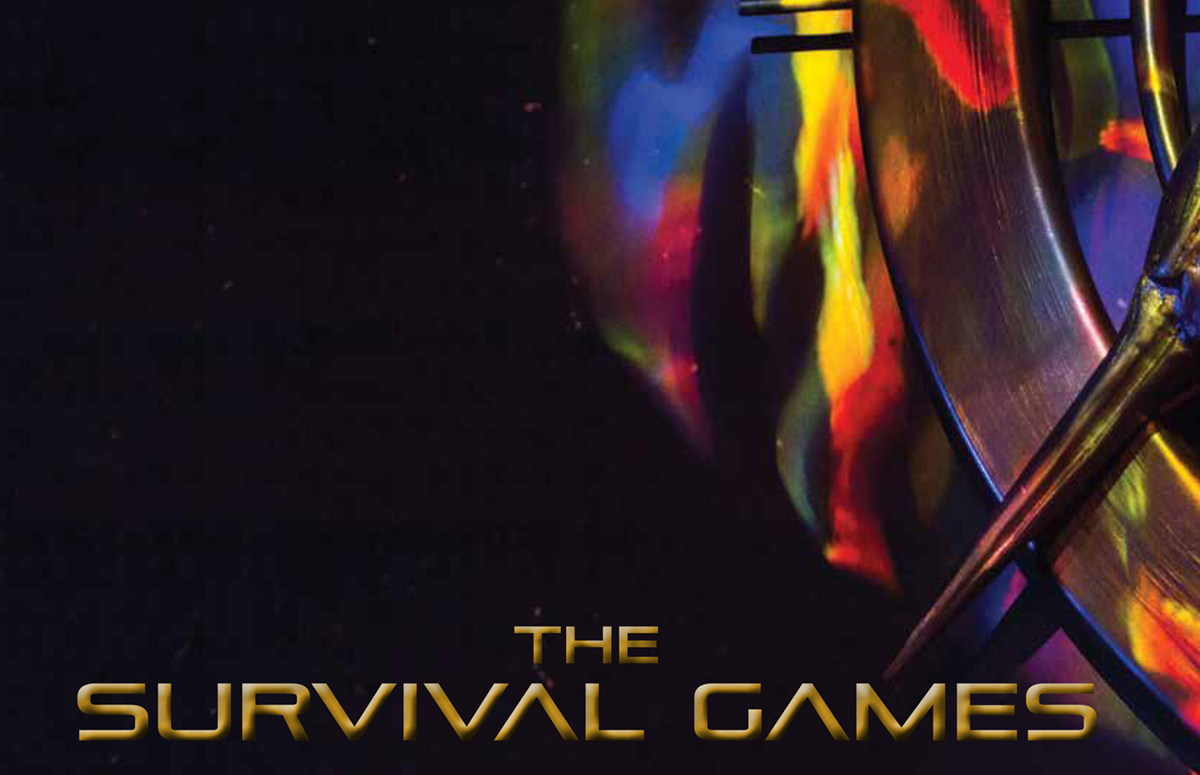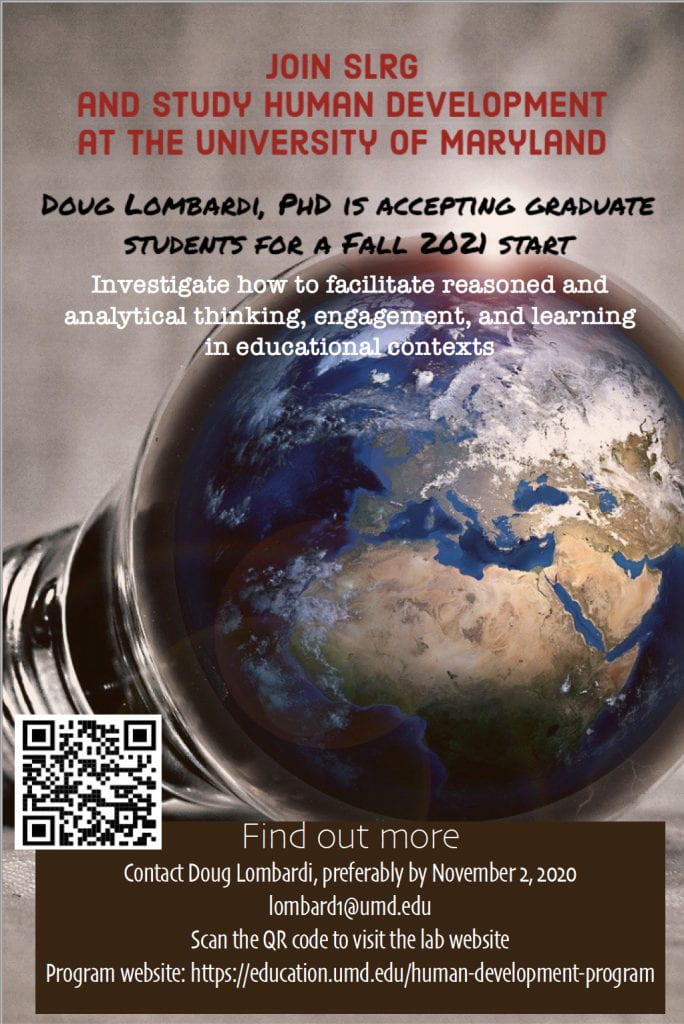Dr. Donna Governor has written a blog post for ARISE on the value of professional organizations, such as National Science Teaching Association (NSTA), in supporting new teachers, especially Noyce Scholars who are beginning their first-full time teaching experiences. Check out the blog post here.
Author: smohan09
“The Curious Construct of Active Learning”: Doug Lombardi publishes in PSPI
Our own Dr. Doug Lombardi published an article with colleagues about active learning in Psychological Science in the Public Interest (PSPI). Association for Psychological Science reports:
In the latest issue of Psychological Science in the Public Interest (PSPI), teams of researchers across many disciplines synthesized recent findings on STEM learning to provide a focused description of active learning and offer guidance on current practice and future research.
‘Because of the vagaries of the term “active learning,” my colleagues and I wanted to provide a coherent and actionable concept of active learning that incorporates a wide array of research disciplines,’ said Doug Lombardi, a researcher at the University of Maryland, College Park, and first author on the paper. ‘Our goal was to provide a clear picture of active learning and offer guidance on research and practice.’
Check out the article here.
SLRG Team Member receives UMD COE Award
Our very own lab coordinator and graduate research assistant, Svetha Mohan, has received the 2021 Outstanding Master’s Student award from the College of Education at University of Maryland. She also successfully defended her master’s thesis and is set to graduate in May 2021. Congratulations!
New Publication in The Science Teacher
Dr. Bailey and four Temple undergraduate students have published an article in The Science Teacher based on their recent work in project-based learning, linking science and science fiction. Check out “The Survival Games: Linking science and science fiction to better understand the realities of biomes, fitness, and climate change” here.

Study on science cafes’ influence on adult science learning
Dr. Donna Governor’s recently published paper on how science cafes, which are open forums promoting the exchange of science ideas between scientists and the public, shows how they can help adults learn science. The study explored Science Café attendees’ interest in science content, and motivational factors in attending events as well as documenting what attendees did with the information presented at an event through the means of a survey and interviews.
Check out the paper here.
The Earth Scientist Special Issue Focuses on MEL Activities
SLRG is proud to announce the publication of our second special issue of The Earth Scientist (Fall 2020), focusing on the build-a-MEL activities. The team worked very hard to present the various activities and supporting articles in a clear and practical way that will support teachers in embarking on their own journey of using MEL and build-a-MEL scaffolds. The full issue can be found here, or you can read individual articles associated with specific activities (Assessments, Editor’s Corner, Extreme Weather, Fossils, Freshwater, Origins, Teaching MELs). Special thanks go to the SLRG team members who authored the articles, as well as to the TES team for supporting our efforts.
A handbook for countering misinformation
Citing the recently published handbook, The Debunking Handbook (2020) from George Mason University Center for Climate Change Communication, UMD College of Education reports:
Today’s society is overwhelmed with misinformation, and technology has only made it easier to spread. Undoing misinformation is difficult, so the best way to combat the spread is to equip people with the tools they need to distinguish the true from the not-so-true.
The Debunking Handbook 2020 aims to do just that by summarizing the current state of the science of misinformation and its debunking. There is little doubt that misinformation and “fake news” are currently undermining democracies around the world. Misinformation has particularly insidious psychological consequences because it often “sticks” in people’s memories even after it has been debunked, and even when people believe and acknowledge a correction.
The Debunking Handbook 2020 was written by a team of 22 prominent scholars for engaged citizens, policy makers, journalists, and other practitioners. Among the scholars is University of Maryland College of Education’s Dr. Doug Lombardi, associate professor in the Department of Human Development & Quantitative Methodology.
“In today’s information maelstrom, people struggle to determine scientific truthfulness. Debunking 2020 offers help, equipping readers with critical-analytical tools to fight weaponized information,” says Dr. Lombardi, a co-author on the handbook.
Read the rest of the article here.
Download the handbook here.
Call for Applications: Dr. Lombardi accepting graduate students for Fall 2021 at UMD
Dr. Lombardi is currently accepting graduate students for a Fall 2021 start at University of Maryland. Please see below for more information and reach out to Dr. Lombardi if interested in applying.

Dr. Donna Governor Publishes in NSTA Journal, Science and Children
Dr. Donna Governor has published a new article on thematic and integrated instruction in the science classroom in Science and Children, the journal for the National Science Teaching Association. Check it out here and please reach out to Donna with any questions!
Governor, D. (2020). A Monarch Tapestry. Science and Children, 58(1).
Dr. Donna Governor screencast on Grounded Theory
This week, Dr. Donna Governor recorded a screencast for the blog QualPage (https://qualpage.com) that introduces grounded theory research. Dr. Governor is an assistant professor in the Middle Grades, Secondary and Science Education Department at the University of North Georgia and a co-PI on the MEL project.
Check out the screencast here.